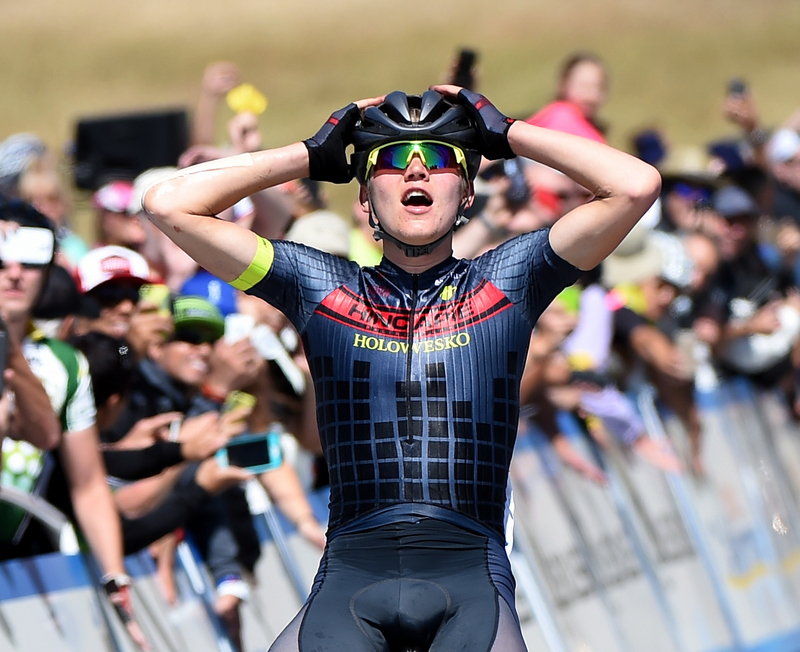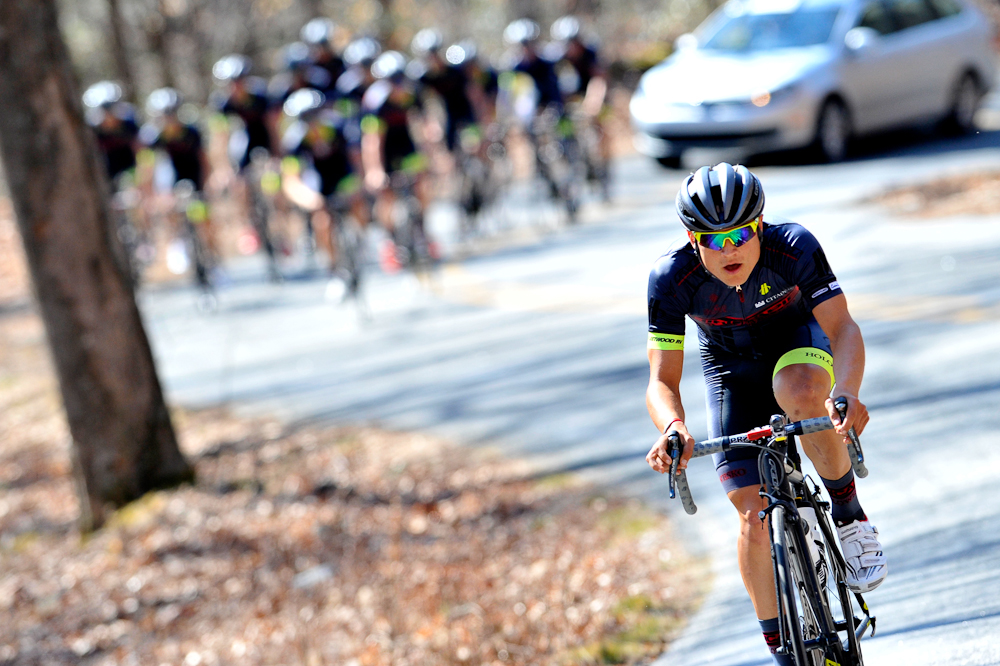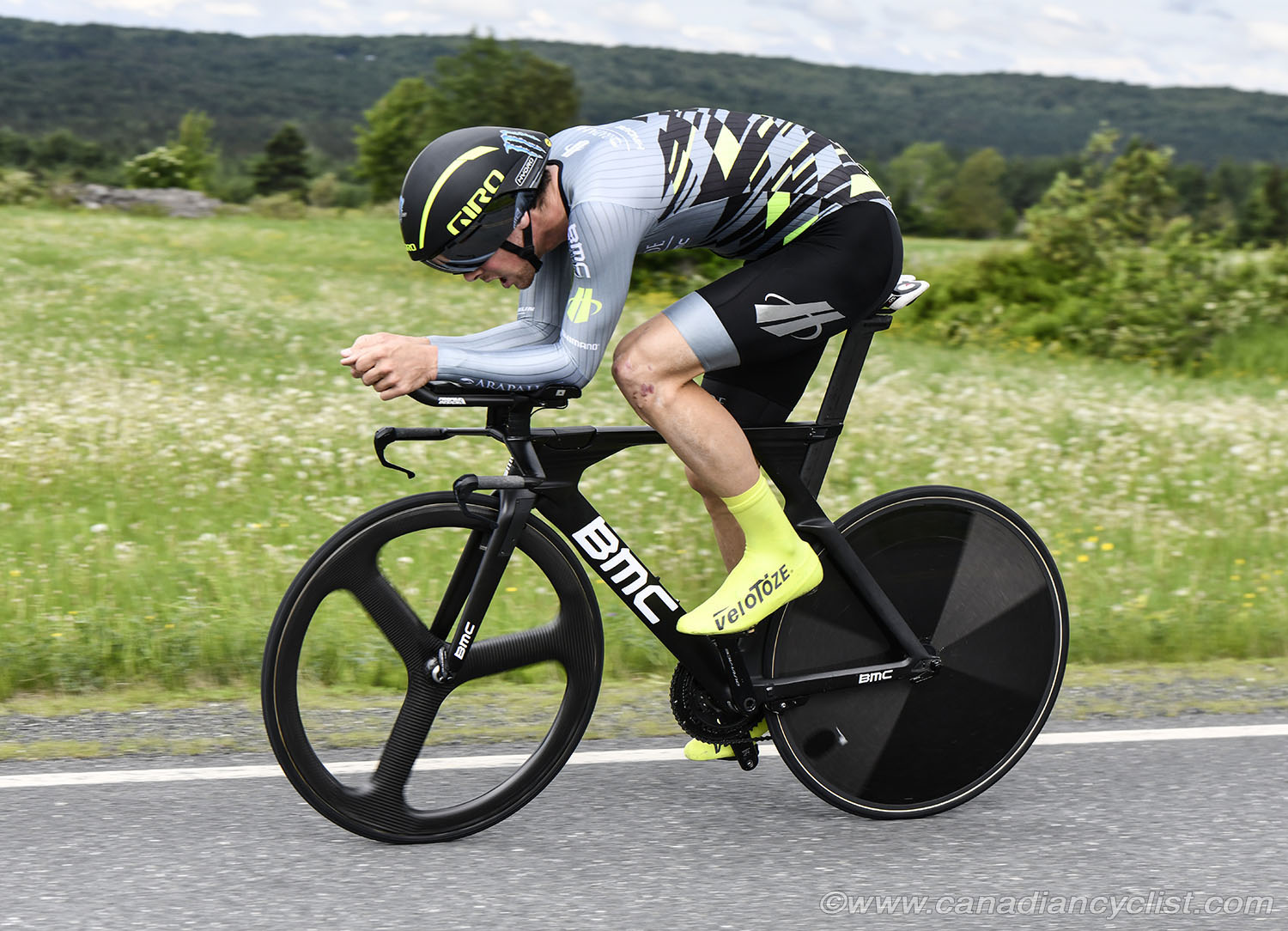Hincapie Continental team comes to an end after eight years
US development squad lacked enough resources to continue

After eight years as one of the most formidable teams in the US, the Hincapie Racing team will come to an end after the coronavirus pandemic kept the team from competing in a single race in 2020. According to Rich Hincapie, who with his brother George has supported the team with their clothing company, the programme will continue as a small junior team in the hopes it can grow back in a year or two when the world's situation has stabilised.
"We started as a BMC feeder team and just kept it going all these years and had some good successes," Rich Hincapie told Cyclingnews. "I'm proud of what we've built and I think we can we can build on that again. It's just as a business owner and someone passionate about the sport and obviously still in the sport, it's about resources and focus on what makes the most sense."
Team manager Thomas Craven had planned an ambitious season of racing as Hincapie-Leomo p/b BMC in Europe in 2020 and moved with the team to Spain in the spring only to have the pandemic bring the season to a halt.
"We tried to do that this year, we made the leap to take the team to Europe and we actually had apartments - I moved to Girona and was there for 17 days before I had to come back," Craven tells Cyclingnews. "It was awful. That sort of indecision - we already did it one year and we spent a lot of money to do nothing with races being cancelled."
Rich Hincapie said the team had built a service course in Europe and had all the trucks, trailers and team cars ready to go.
"We had the full program. We were doing all European racing and once everybody got there, they went into lockdown those guys were stuck. It took them three days to get home. They went from there to Amsterdam and had to wait a couple of days to London and get a last-minute flight out, it was a nightmare."
Craven said the uncertainty of what will happen in 2021 and the indecision about how races can go ahead amid a pandemic in the US were factors in the decision.
Get The Leadout Newsletter
The latest race content, interviews, features, reviews and expert buying guides, direct to your inbox!
"It's difficult to be able to plan for the future in the United States with the lack of races," Craven said, adding that finding sponsors in the US where not a single sanctioned event for pro riders was held this year was difficult. "It's hard to make a commitment to the sponsors and the riders as to what you're actually going to be doing."
Until this week, they were still making plans to have a team but lacked key sponsorship and did not want to lower the standard for the programme.
"We had some money, but not enough money. For us, the way we've been running the team, to take a larger step back like that didn't make sense to the brand, to the riders, to the standard we had for so long. It came to a point where everyone realised that if we tried to cobble it together – it's better to just not do it."
Eight years


The team started in 2012 as a development squad and feeder team for the BMC Racing WorldTour team. It had the backing of George Hincapie and his brother Rich, who runs the Hincapie Sportswear clothing company, and of BMC and the WorldTour team's manager Jim Ochowicz. Among the alumni are current WorldTour riders Joey Rosskopf (CCC Team), Toms Skujins (Trek-Segafredo), Travis McCabe (Israel Start-Up Nation), Dion Smith (Mitchelton-Scott) and Fabian Lienhard (Groupama-FDJ).
After the first season, the team expanded to include riders who had aged out of the Under-23's but continued to put their efforts into developing younger riders. Hincapie took over as the main sponsor from 2013 to 2015 when the team became Holowesko-Citadel.
The team exuded enthusiasm with personalities like Toms Skujins, who brought the squad their first Tour of California stage win, Robin Carpenter, who won Tour of Alberta and a stage of the USA Pro Challenge, and sprinters like McCabe, Ty Magner and John Murphy.
Always an aggressive squad, Craven said the riders liked to attack and were not afraid to go up against the bigger teams. The most notable victory was that of Skujins in the 2015 Tour of California when the Latvian went away with 55km to go over Mt Hamilton to win in San Jose on a stage everyone expected would go to Peter Sagan. Skujins moved into the leader's jersey and held it for three days.
Another major moment for the team came in 2016 when Robin Carpenter (now with Rally Cycling) took the lead in the Tour of Alberta on the penultimate day's time trial and the team managed to defend his lead on the final stage despite a full onslaught from second-placed Bauke Mollema and Trek-Segafredo.
"Every single race that we would go to instead of doing this defensive style of racing - like Sky or Ineos - we would always try and create the chaos of, you know, what are these guys doing?" Craven said. "It was always totally on purpose, though - having two or three guys in the breakaway, five guys attacking at once - just to mess everybody up.
"It wasn't just to get on TV, get most aggressive rider or anything like that. That's how we won races - Joe Martin, stages in Tour of California, Alberta - every race that we did we were an impact on it and I think really the only stage race that we didn't win in the United States was Tour of the Gila. It was a blast figuring all that stuff out and with the team, and make it happen.
"We had a group of guys that would do anything for each other and the individual success were team success. That's what happens when you get a good group of guys together. Everybody had their chance because everybody wanted their teammate to win. Yeah, and a lot of that came down to Oscar Clark, a super unsung guy who didn't win a lot of races but was really the inspiration for everyone. He was literally the strongest and smartest guy in the bike race and he helped all those guys on the road as well as me get that stuff done."
Craven said there weren't any riders under contract for 2021 because the team ran year-to-year every season, and he's been trying to place some riders on teams like Danny van Haute's Wildlife Generation squad, most notably Brendan Rhim, winner of the 2019 Tour de Beauce.
"I've got some good riders that I was hoping to get them exposed to the racing they need to do to get better and get on some of these teams. Brendan Rhim has been on my team since he was a U23 rider and finished college at Furman and was finally able to go full-time on cycling and give it a real kick. He ended up winning Tour de Beauce which, for every other person that wins it, is a ticket straight to the World Tour."
The future
The Hincapie Sportswear company will continue to support riders, Rich Hincapie says, because he and George came up through the sport with the help of others, starting with a few junior riders and then trying to grow the programme next year, hoping that the relationships they've built through their various ventures might bring in new sponsors.
The pandemic has made life difficult for all small businesses and hit all of the Hincapie brothers' concerns. They have an events business, a boutique hotel named Hotel Domestique, and the clothing factory in Colombia that was forced to stop completely for several months because of that country's COVID-19 restrictions. Rich Hincapie said that he committed to not lay off anyone on the team, the sportswear company and other concerns, or furlough or reduce anyone's salary.
"That was my mission from the start. We did not furlough one person in the hotel. We do not reduce one person's salary. We did not fire one person. I made that a goal to not change anybody's lives during this because I think a lot of companies really didn't have to do that but they still did," Rich Hincapie said.
"We do this because we love the sport and we want to help grow the sport and employees are family. And so that was a big, huge goal of mine and we succeeded in it. We've kept everybody, and it was tough. For two or three months it was really tough with hotel and restaurant, but it just went from zero to a hundred miles an hour basically overnight. It's full now, the restaurants packed and people just want to get away."
Hincapie says he still needs to figure out how to get the equipment that is still in the service course in Spain back so he can use it to support the junior team.
"We have a lot of our stuff there. So I got to send some people to pick some stuff up because we're going to transition a lot of stuff to the junior program so we have to figure that out."
Craven isn't done with the sport either. For now, he'll focus on his model trains - a hobby he picked up when racing with the Schwinn and 7-Eleven teams in the 1990s - in hopes that the pandemic will eventually go away and races and teams can thrive again.
"Like so many teams and riders, we're affected by how many races are out there, and the races are affected by everything that's going on in the world. Hopefully, everything will start to change in the next four years – I'm hopeful for that."

Laura Weislo has been with Cyclingnews since 2006 after making a switch from a career in science. As Managing Editor, she coordinates coverage for North American events and global news. As former elite-level road racer who dabbled in cyclo-cross and track, Laura has a passion for all three disciplines. When not working she likes to go camping and explore lesser traveled roads, paths and gravel tracks. Laura specialises in covering doping, anti-doping, UCI governance and performing data analysis.